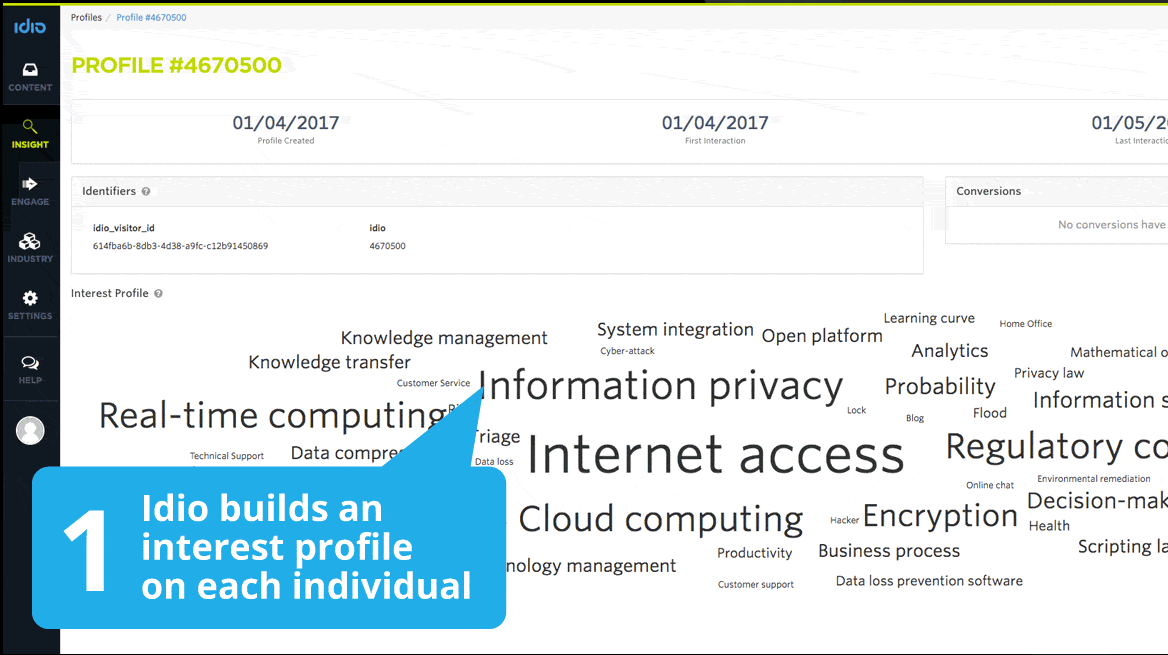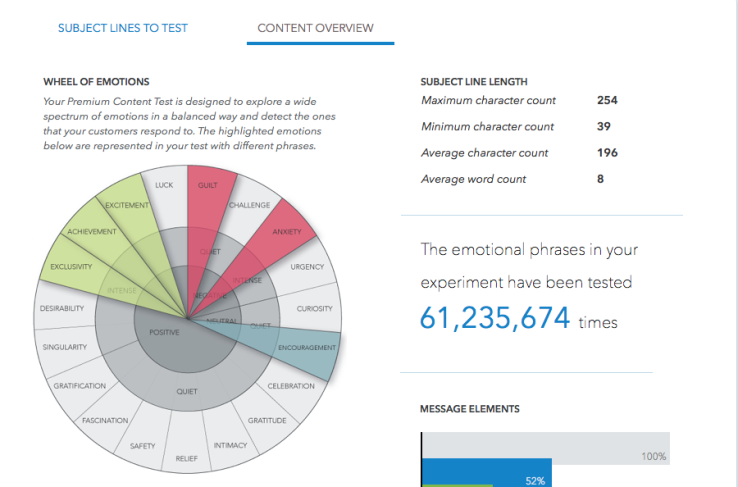How Enterprises Benefit from Content Intelligent Platforms
The term Artificial Intelligence (AI) was coined by John McCarthy in 1956 who also said: “as  soon as it works, no one calls it AI anymore.” Well, we are getting there as we have already started seeing machines learning through data and experiences. Therefore, today, I would like to discuss in and around “content intelligence”, a conjunction where the paths of artificial intelligence and content marketing cross.
soon as it works, no one calls it AI anymore.” Well, we are getting there as we have already started seeing machines learning through data and experiences. Therefore, today, I would like to discuss in and around “content intelligence”, a conjunction where the paths of artificial intelligence and content marketing cross.
Content intelligence is the science of identifying and predicting how to put the right content in front of the right person at the right time. Since it integrates semantic technology and information science, content intelligence is applicable across the entire customer journey where many marketing technologies span one or two touchpoints. At the end of the day, the customer relationship is developed around trust and expertise so intelligent content is the vehicle that represents an organization’s expertise in its industry as well as its understanding of the decisions that need to be made.
According to Forrester’s report, 72% of US online consumers prefer to use Internet to get answers to their questions, rather than contact them via telephone or email. It means your content makes the first impression and builds the first touchpoints. So it is crystal clear that you need killer content as we all know it by now. However, the problem is that with so much being shared, how can content creators and marketers break through the clutter? On top of this, how can organizations truly understand what their target audience expect from them and how the audience reacts to their content so they can transform more anonymous businesses to known prospects? The answer is not creating more content but working with “content intelligent platforms.”
How Can Enterprises Benefit From Content Intelligence Platforms?
Even though content intelligence platforms are specialized in different aspects of content strategy, at the end of the day, they all aim at increasing productivity as well as maximizing the commercial return from content. With a glut of content crowding the internet and reducing the overall impact of content marketing, the combination of automation and data is the only way to empower content creators and enhance content strategy. With content intelligence platforms, organizations can:
-
Deliver consistency across brand content through the capability of creating content reflecting a singular voice, tone, and style.
-
Predict a likelihood of conversion through a particular content before it is even published.
-
Understand which content topic is the most relevant for each customer across channels through the integration with customer relationship management systems and marketing automation systems.
-
Deliver user-specific content experiences via metadata that can help them retrieve every occurrence of a specific type of content, such as all product descriptions, positioning statements, value propositions, setup instructions, etc.
-
Provide action-oriented language recommendations linked to specific objectives.
-
Understand how their content is consumed and by whom.
-
Drive thought leadership and demonstrate expertise, by cutting through the noise with content such as market analysis, market news, and investment research.
-
Convert visitors to leads or to sales.
-
Gain insight at a fraction of the cost and time without the restrictions of traditional methods.
-
Grasp user intent at each level of the customer journey.
-
Learn the topics resonating with particular channels so they can improve or shift the strategy for each channel.
-
Eliminate biased decision making processes by taking the guesswork out of what content to produce and which platform to be on.
-
Understand what topics are performing well on their rivals’ sites as the platforms can demonstrate the common topic, differentiators, and topic gaps which gives them a broader view of their positioning against the competitors.
-
Be armed with predictive insights to uncover hidden opportunities and competitive threats.
Popular Content Intelligence Platforms
Idio
Founded in 2006 by Edward Barrow and Andrew Davies, Idio initially was offering an email delivery engine. In 2013, the vendor started offering a content intelligence platform. The UK-based vendor has offices in London and New York, and has raised a total of $12M in venture capital finance led by Notion Capital, the leading SaaS focused investors in Europe. The cloud-based platform analyzes the way every prospect engages with users’ online content and automatically develops a predictive interest profile for each prospect as they interact. Due to its strategic partnership with Salesforce, Idio’s dashboard can demonstrate what topics are getting the most sales, and from there, it can incorporate the interests and content recommendations with Salesforce for a given prospect. Idio’s natural language processing assigns topics against a pool of 25 million semantic entities, by weight.

Forrester featured Idio in its report entitled Breakout Vendors: Content Intelligence For Marketing and cited: “Businesses that serve customers with multiple points of interest or entry should investigate Idio.” The research firm says that channel-specific personalization reflects at best only a fraction of customer experiences so the platform actually can close that gap in the market.
Another capability that Idio’s customers so often utilize is competitive intelligence to monitor their rivals. With that feature, users can see how their content strategy and volume of publication compares to competitor and media sources, understand the positioning competitors take when they are talking about a specific topic, and see what topics stand out to their competitors’ audience.
Semaphore
Semaphore, Smartlogic’s Content Intelligence platform, auto-classifies information using taxonomies and ontologies to identify the meaningful information it contains. From there, it creates rich metadata that organizations use to audit data, secure sensitive information, drive workflows, improve search and retrieval and discover relationships and patterns. As a result, it turns content into a self-describing resource.
The platform also integrates with content management systems, workflow engines, analytics, business applications and search platforms to maximize organizations’ enterprise technology investment. Using text analytics and natural language processing strategies such as stemming, tokenization, lemmatization and part of speech tagging, the vendor claims that users can identify the sentiment and context within unstructured information and use it to improve their organization.
Persado
The Greek-US vendor was founded in 2012 by Alex Vratskides and Assaf Baciu. Powered by cognitive computing technologies, the platform provides in-depth understanding of emotions within languages and a customer’s response to them within a marketing scenario. The vendor claims that more than a hundred global brands use their platform to optimize marketing campaigns, resulting in a 49.5% average lift in conversions, a 68.4% improvement in click-through rates, and $1 billion in incremental revenues. Persado was awarded No. 16 on the Inc. 5,000 list of America's fastest-growing companies in 2016.

The company makes it clear by saying: “Our approach was never intended to describe human behavior but rather to capture subtle differences in the language used specifically for marketing. With this in place, we could find what works most effectively to inspire action.”
Persado works across 23 different languages and leverages 15 different emotions within its model. Forrester recommends the platform for companies leveraging direct response channels such as retail, eCommerce, telecom, travel/hospitality, media/entertainment, and financial services.

Venus Tamturk
Venus is the Media Reporter for CMS-Connected, with one of her tasks to write thorough articles by creating the most up-to-date and engaging content using B2B digital marketing. She enjoys increasing brand equity and conversion through the strategic use of social media channels and integrated media marketing plans.